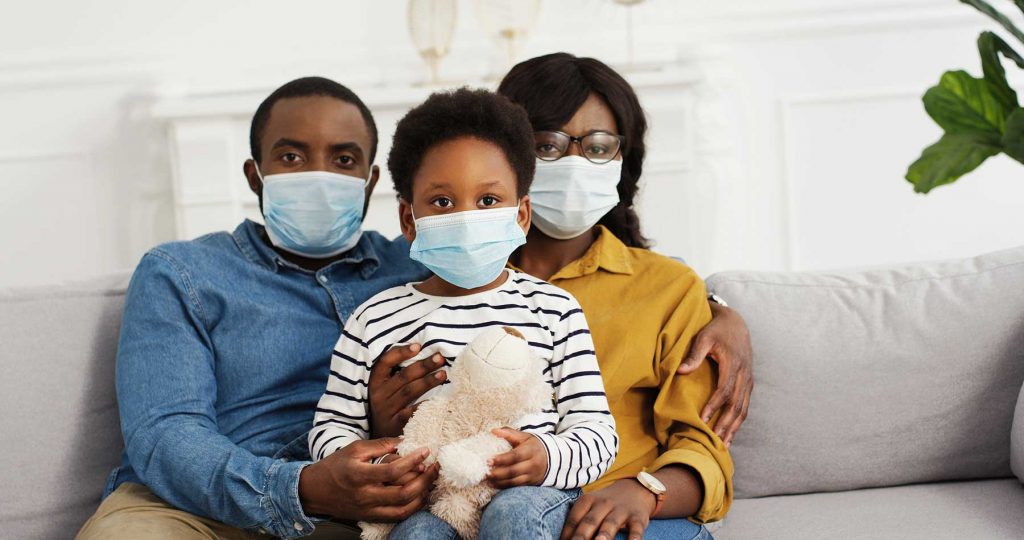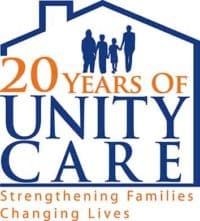Here’s what keeps me up at night
In March, when the COVID-19 pandemic was still somewhat new, I woke up at 4 a.m. with the realization that we needed to do something to engage and empower the African ancestry community to fight this disease. It seemed like every news outlet in America was talking about COVID-19 non-stop, but not in a way that was engaging and informative for the African ancestry community. Many of the youth and emerging adults we work with at Unity Care didn’t understand the impact of this virus. My own mom was jumping on a plane to go to New Jersey, saying “I’m prayed up, there’s nothing gonna stop me from going.”
So that morning, I registered for the website domain “covid19black.org.” And after the sun came up a few hours later, I got to work.
In the five months since, I’ve had dozens of focus groups and community meetings, and hundreds of phone calls and emails from people who want to get involved in this initiative. Researchers started looking at the numbers and talking about the fact that people of color, especially Black and Latinx folks, are suffering and dying in far greater numbers than Whites, relative to their proportions of the U.S. population. And then on Memorial Day George Floyd was killed, and communities all over the country and the world rose up in the streets to say, once again and louder than before: Black Lives Matter.
Fighting back against systemic racism
The COVID-19 pandemic’s disproportionate impact on the African ancestry community is a direct result of centuries of systemic racism in this country. So in July we launched a Bay Area health initiative, COVID-19 BLACK — a platform for the African ancestry community to come together and leverage our strengths, the power of our entire village, to protect ourselves from this pandemic.
As Dr. Ayanna Bennett, Incident Commander, San Francisco COVID Command Center and Director of Health Equity at San Francisco Department of Public Health, pointed out at COVID-19 BLACK’s town hall meeting on July 30th, San Francisco’s COVID-19 cases follow its old redlining map. “All of our health disparities have followed that map for the last 60 years,” said Dr. Bennett. “COVID cases are exactly where Black and Brown people have been relegated in this city for a really long time. It’s really a case of the chickens come home to roost, disparities this country has not made reparations for.”
People of African ancestry had poorer health outcomes even before COVID. Melissa Jones, Executive Director at Bay Area Regional Health Inequities Initiative, pointed out that the average life expectancy in the Bay Area is more than 81 years, while life expectancy for Black residents is less than 73 years. “The death rates are really an issue of the social inequities that we’ve experienced over time,” said Jones. “Eighty percent of what happens to us in terms of health is around the living conditions and inequities we face.”
Jones and Dr. Bennett were among the dozen Black leaders who shared their insights at our regional town hall “Saving Black Lives — all around the Bay Area,” the first public event organized by the COVID-19 BLACK team.
More than 700 people tuned in to listen to our message and learn about our initiative, and people are still watching the recording of the town hall and visiting the COVID-19 BLACK website every day to learn about the issues and find resources they can use in their own families and neighborhoods.
Even greater urgency
In the past couple months COVID cases and deaths have risen dramatically as people tired of social distancing. Congressman John Lewis died, reminding us how long the fight for civil rights and racial justice has been going on, and what an unshakeable moral compass looks like. And as I write this, people are crying out again in protest of yet another police shooting of an unarmed Black man — this time Jacob Blake, a young father shot in the back seven times as he walked to his car, where his kids were waiting.
This confluence of events — a pandemic feeding off layers of social injustice and racism — makes COVID-19 BLACK even more important and urgent.
COVID-19 BLACK is a platform for reshaping a narrative of our own content and storytellers, so we can make sure our community gets the right information by communicating through our lens and in the way we need to hear it.
As Dr. Noha Aboelata, CEO at Roots Community Health Center, said at our town hall: “Trusted messengers are needed to deliver sound, fact-based messaging directly to the community. It’s critical that we band together in the way that we are and be that trusted voice and trusted messengers that our community can rely upon.”
Taking charge of the response
The African ancestry community has responded to COVID with solutions developed by our community and delivered directly to our community by members of our community. Many of these programs and services can be found on the COVID-19 BLACK website’s searchable directory of Bay Area Black-led organizations.
Speakers at the town hall shared their culturally competent solutions, including practices such as enlisting members of the community to create and deliver messages and perform contact tracing, bringing services like testing directly into the community, and partnering with faith groups and each other to advocate for eviction moratoriums, offer rent assistance, and distribute food and other essential supplies.
“We took power into our own hands in terms of the response,” said La Roux Pendleton, Policy Director, Community Wellness, HOPE SF — Office of Mayor London N. Breed.
Get involved
The issues that the COVID-19 BLACK initiative aims to address, the problems that keep me up at night — entrenched racism in our formalized systems, and stopping the spread of COVID-19 in our community — are literally a matter of life and death.
I urge you to take action. Go to our website and learn about COVID-19 and how to protect yourself and your family. Print our COVID-19 flyer and post it in your neighborhood. Listen to our stories or share your own story. Subscribe to our email updates. Watch the town hall.
Connect with others in the community, share information, and work together. Vote for Proposition 15, “Schools and Communities First” and Proposition 16, to get rid of Proposition 209.
As Kimi Watkins-Tartt, Public Health Director, Alameda County Public Health Department, said: “This is a tragic moment. But it’s also providing us with a lot of opportunities to ensure that COVID isn’t the same story as all the other health issues that we see, where the health issue doesn’t start with us, but it ends with us.”
Be safe,
André Chapman, MA
Founder & CEO



